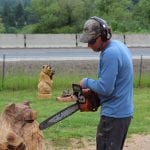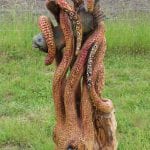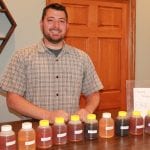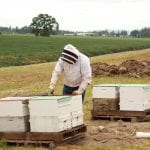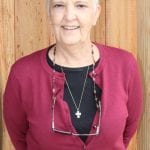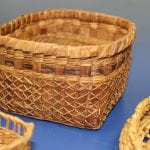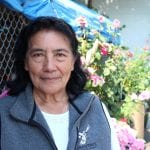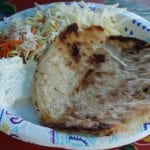Amy Howard
During the spring and summer of 2018, OFN hired me to conduct folklife fieldwork in Marion and Polk counties and at the Confederated Tribes of the Grand Ronde. The geographical area I covered was large and diverse. The sheer length of each county encompasses a landscape in transition—mountain to valley to coast. Each day brought new surprises: green fields and grasses in wine and sheep country; bustling city streets; pine-encompassed mountain lakes, and winding, sparkling rivers. The landscape reflects the local agricultural and industrial economies.
The people are equally diverse, each a wonder in their own way. Their identities and folk arts and practices also reflect the topography and economy. Whether loggers creating art from the medium they know inside and out (wood), transplants from foreign countries carrying on traditional skills, Native artists connecting to roots that were once taken away, or farmers keeping their multi-generational farms relevant and operational, the people of the Willamette Valley adapt to their surroundings. They preserve the identity that is most important to them while being rooted in traditions they cherish. I felt honored to document a snapshot of Oregon’s ever-changing, rich cultural landscape.
Chainsaw carver James Lukinich (Willamina) lived in Oregon until age 14, when he traveled to Alaska to join his brother and learn the logging business. For James, wood carving was a natural art form to pursue during long stretches of isolation in the Alaskan wilderness. While he worked as an arborist in San Diego, chainsaw carving went from hobby to career as he completed an increasing amount of custom jobs to repurpose tree stumps. He began participating in chainsaw carving competitions in 2009 and finished in the top 10 at the national competition in Reedsport last year. He and his wife, Marilyn, returned to his Oregon home, where he has continued to practice his craft professionally.
Jeremy Mitchell (Salem) is an advocate for bees. As one of the few young beekeepers with a mid-sized operation in the area, he and his bees fill an important role in the Willamette Valley, pollinating berries and other produce at small farms. Schooled in beekeeping by his great-uncle, Wayne Porter, and through the OSU Extension Master Beekeeper course, Jeremy took over Flying Bee Ranch from his relatives in 2017 after Wayne’s passing. At that time, Jeremy transformed from hobbyist to full-time, professional beekeeper, helping his great-aunt, Kathy Porter, keep the business a family operation. They are known for their mono-source honeys, captured after the bees pollinate specific crops. Jeremy also works to educate the public about bees’ role in agriculture and strategies for keeping them safe.
Connie Graves (Sheridan) is a traditional basket weaver of the Confederated Tribes of the Grand Ronde. She’s been instrumental in revitalizing and teaching the art of basket weaving for her Tribe. Born in McMinnville, she has lived her entire life in the Grand Ronde area. Connie has always possessed a love of craft and creativity and an ability to create by simply looking at an example. With her masterful basketry skills, she makes hats, baskets of all dimensions, doll clothes, baby rattles, or whatever she is inspired to do. She collects and works with many varieties of reeds, grasses, barks, and roots. Connie is currently battling cancer but still exudes positive energy and strength in all she does. Her help in the project was enormous.
As an addendum to my fieldwork in Polk and Marion Counties and with the Confederated Tribes of the Grand Ronde, I was privileged to conduct some further documentation in Lane County. Juana Cortez (Eugene) owns and operates Juanita’s Pupusería, a food truck specializing in food from El Salvador. A pupusa, the national dish of El Salvador, is a thick flatbread made of masa—corn flour and water—stuffed with one or more ingredients such as cheese, squash, refried beans, or meat, then cooked on a griddle. The versatile flatbread comes from the Maya/Pipil culture of El Salvador. Cortez, a restauranteur in her native country, came to the US in 1987 as a refugee of war and natural disaster. A single mother, she worked and saved for years before returning to her dream of owning and running a restaurant. What began as a pupusería has expanded into a celebration of Salvadoran and Mexican foods. If someone asks for it, she can make it, she says. Cortez’s food traditions connect her to homeland and, more importantly, allow her to enjoy peace and stability after a life of hardship and perseverance.
These individuals represent a few of the many hard-working, diligent bearers of folk traditions I documented for this project. Like Oregon’s beautiful landscapes, these people deserve to be celebrated and supported as part of the cultural landscape.
